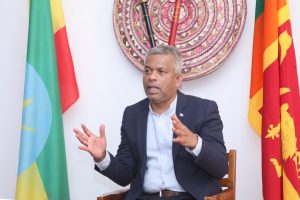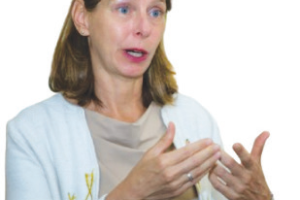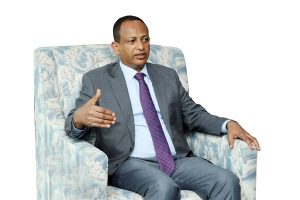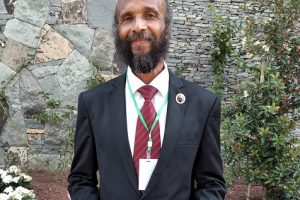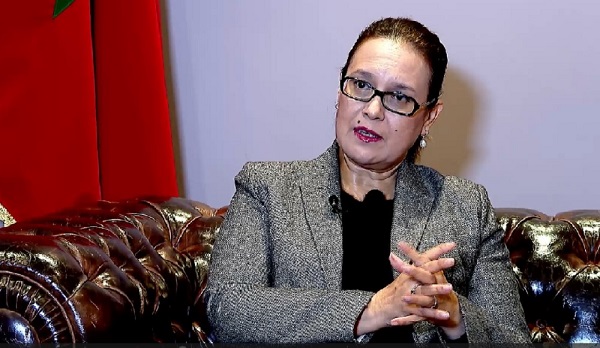
Morocco and Ethiopia have maintained diplomatic relations characterized by economic cooperation, political support and cultural exchanges. These ties have been strengthened following the visit of Moroccan King Mohammed VI to Ethiopia, which was an important step towards cultivating bilateral relations.
These days, the two African countries are now striving to establish a joint commission to deepen their ties.
The Ethiopian Herald has conducted interview recently with the Moroccan Ambassador Nezha Alaoui M’hammdi, discussing a broad range of bilateral, multilateral and regional issues. Ambassador Nehza, on her part, provides in-depth responses to inquires raised at the time of interview. Enjoy reading!
In a recent discussion with the State Minister of Peace, you mentioned that Ethiopia and Morocco will continue to collaborate on peace building and national consensus. Can you elaborate on this commitment?
First of all, Morocco and Ethiopia share a deep commitment to peace, stability, and national cohesion. Both countries understand that national consensus and dialogue are key to addressing challenges such as social cohesion, governance, and conflict resolution, and we are committed to sharing best practices and expertise in these areas.
Morocco has a long-standing tradition of supporting peace initiatives across Africa, whether through mediation efforts, capacity-building programs, or contributions to peacekeeping missions.
Under the leadership of His Majesty King Mohammed VI, Morocco has consistently advocated for African solutions to African challenges, emphasizing dialogue, reconciliation, and inclusive governance. Ethiopia, as the host of the African Union and a key player in regional peace efforts, also plays a crucial role in conflict resolution and mediation within the Horn of Africa.
Our collaboration seeks to build upon these strengths, fostering institutional exchanges, training programs, and diplomatic engagement to support national unity and regional stability. Moving forward, Morocco and Ethiopia will continue to explore avenues for deeper cooperation in peace building, whether through bilateral initiatives.
The Bilateral relations between Ethiopia and Morocco are advancing, with both countries committed to collaborating in various areas. Can you provide insight into the areas of cooperation and partnership that have shown progress?
The bilateral relations between Ethiopia and Morocco have been growing steadily, with significant progress in multiple sectors over the past year. Both countries have demonstrated a strong commitment to strengthening their partnership through agreements and high-level exchanges. In key areas such as air services, trade, taxation, investment, agriculture, and renewable energy, cooperation has been strengthened through ongoing dialogue and technical engagements. These sectors remain vital to deepening economic and strategic ties, with both nations working to create a more conducive environment for trade and investment flows.
Furthermore, last year marked a significant milestone in diplomatic relations with the organization of the first political consultations between Ethiopia and Morocco. This important dialogue was led by State Minister Misganu Arga and Director General Ambassador Fouad Yazourh, providing a platform for both sides to discuss key bilateral, regional, and international issues.
One of the most notable developments in the past year is the increased collaboration in the defence and security sectors. The exchange of military delegations has opened new avenues for cooperation in capacity building, training, and experience-sharing, reflecting the mutual interest in promoting regional peace and stability. Moreover, diplomatic engagements have been expanded beyond economic cooperation, with a notable visit from a delegation of the Ethiopian Ministry of Peace.
Furthermore, cultural and religious ties have been strengthened with the visit of an official delegation from the Mohammed VI Foundation of African Oulema. These developments highlight the dynamic and evolving nature of Morocco-Ethiopia relations, setting the stage for even deeper collaboration in the years ahead. Morocco remains committed to supporting Ethiopia’s efforts in promoting peace, tolerance, and social cohesion, reinforcing shared values of stability and unity.
Despite numerous Moroccan investors visiting Ethiopia, they are not implementing their plans. Have you identified any impeding factor?
Moroccan investors have shown a strong interest in Ethiopia, recognizing its strategic location, growing market, and economic potential. Several high-level business delegations have visited the country to explore opportunities in various sectors, including agriculture, manufacturing, and renewable energy. However, turning investment plans into reality requires a conducive business environment. In our case some challenges have been identified, and we are working closely with our Ethiopian counterparts to address them.
Morocco and Ethiopia share a strong commitment to economic cooperation, as demonstrated by key agreements and partnerships in recent years, especially those signed in 2016, when His Majesty the King visited Ethiopia.
Besides the significant investment by OCP Group in Ethiopia’s fertilizer industry, Moroccan banks have also shown strong interest in expanding into the Ethiopian market, recognizing the country’s financial sector as a promising area for growth. Additionally, there is interest in education sector, contributing to capacity building and knowledge exchange between the two countries, and also in the interior furnishing sector, further diversifying the scope of economic engagement.
While some projects may face delays due to structural and operational challenges, Morocco remains committed to strengthening economic ties with Ethiopia. The Moroccan private sector is eager to engage, and addressing these barriers will help unlock the full potential of investment opportunities. We remain optimistic about the future of economic relations with Ethiopia and looks forward to seeing concrete progress in transforming investment plans into impactful projects that benefit both nations.
In addition to economic ties, the cultural connection between Morocco and Ethiopia is significant; with shared cultural values. How important is it to deepen cultural exchanges?
Cultural exchanges play a crucial role in strengthening the historical and diplomatic ties between Morocco and Ethiopia. Both countries share deep-rooted cultural and historical connections, particularly through their African and Islamic heritages.
These common values, reflected in music, traditions, and historical interactions, create a strong foundation for mutual understanding and collaboration. By deepening cultural exchanges, we reinforce not only our bilateral relations but also the broader vision of African unity and cooperation.
Morocco has always placed great emphasis on cultural diplomacy as a key pillar of its foreign policy. Various initiatives, such as academic scholarships, artistic collaborations, and interfaith dialogues, have helped strengthen cultural ties between Moroccan and Ethiopian societies.
Expanding cultural exchanges between Morocco and Ethiopia will not only enhance people-to-people connections but also create new opportunities for tourism, creative industries, and academic cooperation. Investing in culture means investing in our shared future where our nations continue to grow together, strengthening our historical bonds and contributing to Africa’s cultural renaissance.
How would you explain contributions of Ethiopia and Morocco to Africa’s overall progress?
Ethiopia and Morocco are Africa’s most influential nations, being the founding fathers of the Organization of African Unity, each playing a unique yet complementary role in the continent’s progress. Ethiopia, as the seat of the African Union and a symbol of African independence, has long been a driving force behind pan-Africanism and continental integration. Its historical resistance to colonization, its leadership in diplomatic affairs, and its contributions to regional peace and security have positioned it as a key player in Africa’s political landscape.
Likewise, Morocco, which was the host of the Conference of Casablanca in 1961 that played an important role in the liberation of African countries under colonial rule, has remained deeply committed to Africa’s development. Today, under the leadership of His Majesty King Mohammed VI, Morocco has actively engaged in promoting South-South cooperation, economic partnerships, and sustainable development initiatives across the continent.
Both countries have contributed significantly to Africa’s development. Ethiopia’s growing industrial sector, agricultural potential, and investments in infrastructure have set an example for emerging economies, while Morocco’s expertise in renewable energy, finance, and fertilizer production has supported agricultural transformation and energy access in various African nations.
There were also plans to establish a joint commission between the two countries. Would you please provide an update on the progress of this initiative?
The establishment of a joint commission between Morocco and Ethiopia is a significant step toward deepening bilateral cooperation and enhancing strategic dialogue. Over the past year, both countries have been actively working on this initiative, recognizing its importance in strengthening diplomatic, economic, and cultural ties. The commitment from the highest levels of leadership in both nations reflects a shared vision of fostering closer collaboration in key areas such as trade, investment, education, and security. This commission will serve as a structured platform for coordinating joint projects, addressing challenges, and exploring new avenues of partnership.
We are optimistic that the first session of the joint commission will be organized in the next few months, bringing together officials and experts from both countries to set the stage for a new era of collaboration. The goal is to create a dynamic and action-oriented mechanism that strengthens Morocco-Ethiopia relations in a sustainable and impactful manner. This initiative underscores our shared commitment to enhancing South-South cooperation and working together toward common development goals.
What potential areas of cooperation are being considered by both countries but have yet to be explored?
Morocco and Ethiopia have made significant progress in strengthening their cooperation across various sectors, including trade, investment, agriculture, renewable energy, and cultural exchange. However, there remain several promising areas of collaboration that have yet to be fully explored. One such area is the digital economy and technology sector. Ethiopia’s rapidly growing digital infrastructure and Morocco’s expertise in financial technology, telecommunications, and e-governance create opportunities for knowledge exchange and joint ventures in innovation and digital transformation. Enhancing cooperation in this field could help support Ethiopia’s digitalization efforts and foster economic inclusion through technology-driven solutions.
Another area with strong potential is water resource management and climate adaptation. Both Morocco and Ethiopia face challenges related to climate change and sustainable agriculture. Morocco has played a key role in global climate initiatives, hosting COP22 in 2016, which reinforced the commitment of African nations to addressing climate-related challenges. Additionally, Ethiopia is a member of the AAA (Adaptation of African Agriculture) Initiative, launched by Morocco to promote climate resilience in African agriculture through sustainable practices, financial support, and technological advancements.
Morocco has developed advanced techniques in water conservation, desalination, and irrigation, which could be valuable for Ethiopia’s agricultural sector. Collaboration in this field could lead to capacity-building programs, joint research initiatives, and technology transfer to improve water efficiency and environmental sustainability.
Additionally, given Morocco’s leadership in renewable energy, particularly in solar and wind power, further partnerships in green energy development could support Ethiopia’s ambitions for a more sustainable energy mix.
Tourism and aviation are also promising areas for future cooperation. Ethiopia, as a major hub for air transport through Ethiopian Airlines, and Morocco, with its well-developed tourism industry, could work together to boost connectivity, promotes joint tourism packages, and enhances people-to-people exchanges.
Strengthening partnerships in education, particularly in higher education and vocational training, could also open new pathways for collaboration. By identifying and developing these untapped areas, Morocco and Ethiopia can further diversify and deepen their strategic partnership, ensuring long-term benefits for both nations.
Migration poses a significant challenge for our continent, affecting many of Africans. The escalating issue of migration now threatens not only Africa but also European countries. How can this challenging issue be effectively addressed?
Migration is a complex issue that requires a comprehensive and balanced approach, addressing both its root causes and its consequences. To effectively manage migration, African countries must work together to create more opportunities for youth and vulnerable populations through economic development, education, and job creation.
Investing in infrastructure, industrialization, and regional trade can help reduce the need for irregular migration by offering better prospects within the continent. Furthermore, it is crucial to promote stability and security, as conflicts and political instability often drive forced displacement.
Today, the largest migration flows in Africa are intra-African, occurring between different countries on the continent. This is driven by various factors, including armed conflicts, political instability, and the effects of climate change, which force many individuals and communities to seek safety and better living conditions elsewhere within Africa.
Given this reality, promoting intra-African mobility and deepening economic integration is essential in addressing migration challenges and providing viable alternatives to irregular migration. This requires the implementation of policies that facilitate labor mobility, ensure the mutual recognition of qualifications, and empower African talent to contribute to the continent’s development while fostering greater regional stability and economic resilience.
Morocco has adopted a proactive approach to migration, integrating humanitarian values with practical policies. As a country of origin, transit, and destination for migrants, Morocco has implemented inclusive migration policies, including the regularization of migrants and refugees, as well as programs that facilitate their socio-economic integration.
At the continental level, His Majesty King Mohammed VI, as the African Union Leader on Migration, has emphasized the importance of a coordinated African strategy on migration. This vision is reflected in the African Migration Observatory, based in Morocco, which works on data collection, policy coordination, and capacity building for African nations.
Additionally, the Global Compact for Safe, Orderly and Regular Migration, known as the Marrakech Compact, plays a crucial role in ensuring better protection for migrants at the international level while preserving the sovereignty of states over their migration policies. This global framework, endorsed by the international community, underscores Morocco’s commitment to fostering a balanced and humane approach to migration governance.
Many African cultural heritages were looted during the continent’s colonization. Can Africans assert their identity loudly in the absence of these heritages?
Africa’s cultural identity is deeply rooted in its traditions, languages, and shared history, which go beyond physical artifacts. While the looting of cultural heritage during colonization was a significant loss, African nations continue to assert their identity through oral traditions, music, dance, literature, and craftsmanship. The resilience of African culture lies in its ability to adapt and thrive despite historical injustices. However, the restitution of looted artifacts remains an important issue, as these objects hold profound historical, spiritual, and artistic value.
Morocco has always been a strong advocate for preserving and promoting African cultural heritage. Last year, the Embassy of the Kingdom of Morocco organised alongside the Representation of UNESCO and OIF a round table discussion on cultural and creative industries and the restitution of African cultural heritage.
The return of looted artifacts is an important step toward historical justice and reconciliation. However, reclaiming African identity is not solely dependent on their restitution. It is also about investing in cultural institutions, supporting local artists, and integrating African history and heritage into education systems.
In this regard, the cultural and creative industries play a crucial role in shaping and strengthening African identity. These industries, spanning music, film, fashion, literature, and digital arts, are not only a means of cultural expression but also a powerful driver of economic growth and social development.
By fostering creative industries, African nations can empower young talent, preserve traditional knowledge, and showcase the richness of their heritage on a global scale. Supporting these industries through policy frameworks, funding, and infrastructure development will ensure that African culture continues to evolve, inspire, and contribute to global artistic and intellectual discourse.
Thanks for your time and willingness
Thank you
BY GIRMACHEW GASHAW
THE ETHIOPIAN HERALD SATURDAY 22 MARCH 2025

